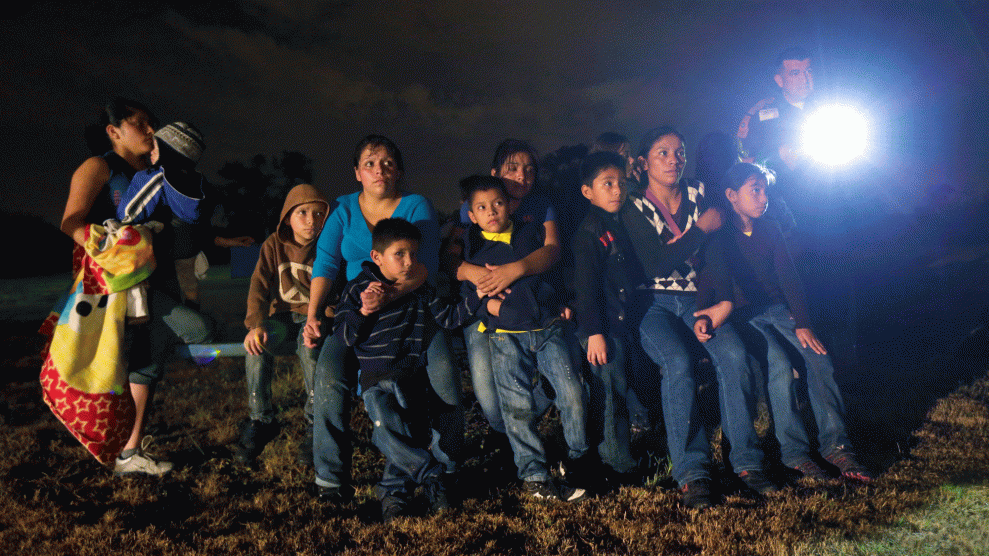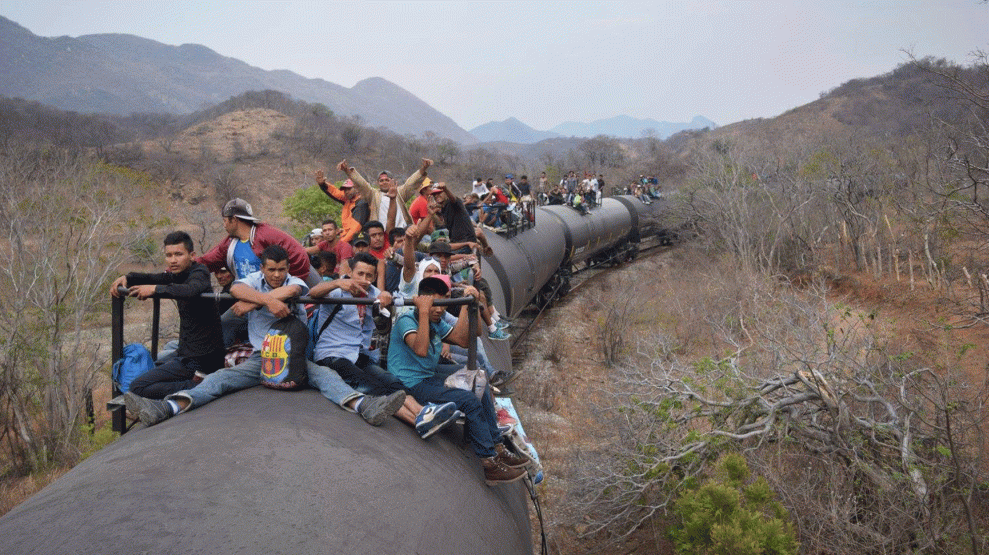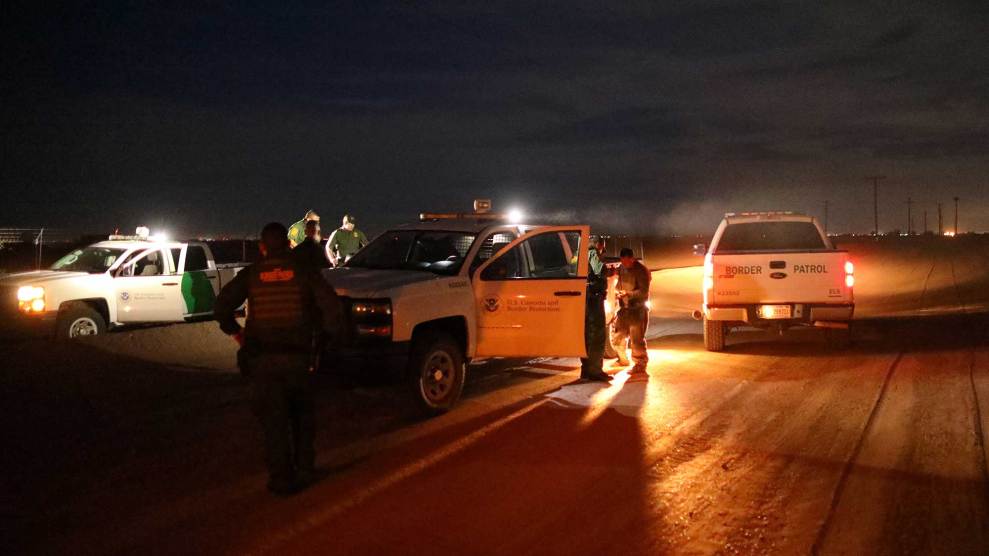
Young migrants from Honduras and El Salvador who were stopped in Texas after crossing the US-Mexico border in June 2014.Eric Gay/AP
While President Donald Trump has squawked about “bad hombres” invading America, the reality is that many migrants seeking to settle in the United States are not importing violence but fleeing it. As detailed in a new report from Kids In Need of Defense (KIND), an nonprofit organization focused on protecting children who enter the US immigration system, many Central American migrants, especially children, who head north are trying to escape extreme sexual and gender-based violence.
Tens of thousands of unaccompanied child migrants reach the United States’ southern border every year. In 2014, their numbers peaked at more than 68,500. Last year, Customs and Border Patrol apprehended nearly 60,000 unaccompanied kids, the vast majority of them from Central America. The reasons these children are trying to enter the United States are grim. The Northern Triangle of Central America, which includes El Salvador, Honduras, and Guatemala, has some of the highest homicide rates in the world. In particular, girls, young women, and gay youth in the region face a barrage of sexual exploitation and violence, according to the KIND report.
In recent years, gangs have increased their control over the region, as well as their savagery. According to KIND, sexual violence is one of their main tactics to control territory and communities. Gang members may choose girls to serve as “girlfriends” against their will and with no way out. “These girls, many of them between the ages of 12 and 16, are forced into situations of sexual and domestic servitude by gang members. Girls are trapped into these relationships, and any attempt to leave is considered an offense against the gang and punished with violence or even death,” said Rachel Dotson, KIND’s gender and migration initiatives director, in a press conference on Thursday.
In other instances, according to KIND’s findings, gangs abduct girls to be raped and tortured. “Sometimes girls are held for days, or weeks. When the gang is finished with the girl, she may be killed, or she may be allowed to go, but under the threat that if she reports to the violence, she or members of her family will be killed,” says Dotson. The gangs also force teenaged girls into sex trafficking schemes.
It’s not just this kind of violence that drives people to flee, it’s also the Central American governments’ lack of response. Dotson says that “representatives of government agencies in all three countries acknowledge there is little their governments can do to protect them.” In some areas, as many as 95 percent of crimes go unpunished. Police and other authorities are often complicit in gang activities. Witness protection programs lack the capacity to protect victims. Some shelters for crime victims explicitly ban victims of gang-related violence because they can’t guarantee their safety, says Dotson. Kids in these circumstances have few choices. Fleeing for the United States is one of them.
But once these children arrive at the US border, another series of challenges begin. As Mother Jones reported earlier this week, Customs and Border Protection (CBP) officials have allegedly been turning back asylum seekers at alarming rates—a trend that ballooned following Trump’s election:
According to multiple human rights lawyers and observers, CBP officials at border crossings have denied entry to refugees on a variety of pretexts. Some asylum seekers have been told they need paperwork from the Mexican immigration agency or that they’ll have to come back later because officials don’t have time to process them. Others have been told that the United States is no longer accepting people from their country or that it’s only admitting refugees from countries where Christians are being persecuted.
Lisa Frydman, the director of regional policy and initiatives at KIND, says she has been told that these “turnbacks” have affected some children as well as women fleeing sexual and gender-based violence. Even if the migrants are not turned away, she says, the process of entering the United States is harrowing. Because the federal government does not provide legal representation for asylum seekers, more than 50 percent of the unaccompanied minors who make it into the United States do not have attorneys—making it extremely difficult for them to explain that they are seeking asylum to escape the violence directed at them. “These are challenging cases, highly dependent on the evidence and the facts and being able to present a claim according to the legal standard, which really requires counsel,” says Frydman. To apply for asylum, migrants must show that they have a “credible fear” of persecution or violence if they return to their home countries.
All too often, the reasons people migrate to the United States are misunderstood. At an event at the Atlantic Council on Thursday, Homeland Security Secretary John Kelly implied that most migrants seeking asylum lie in order to be admitted to the United States. “The vast majority of people who come up here…the overwhelming number, say exactly the same words because they are schooled by the traffickers to say certain words, to give certain scenarios, which, generally speaking, will get you to remain in the United States, in the system, because of a credible fear claim,” he said. Olga Byrne, a senior associate at Human Rights First, responded in a statement, “There is no evidence supporting the claim that any significant proportion of asylum seekers presents false claims or otherwise attempts to defraud the system.”
“Very clearly,” argues Frydman, “violence is a huge driver of why these kids and other Central Americans are coming, and there continues to be a failure to understand that the Central American situation is a refugee situation.”















